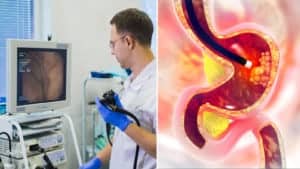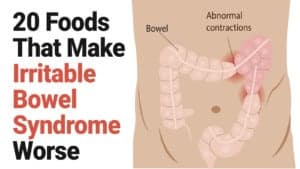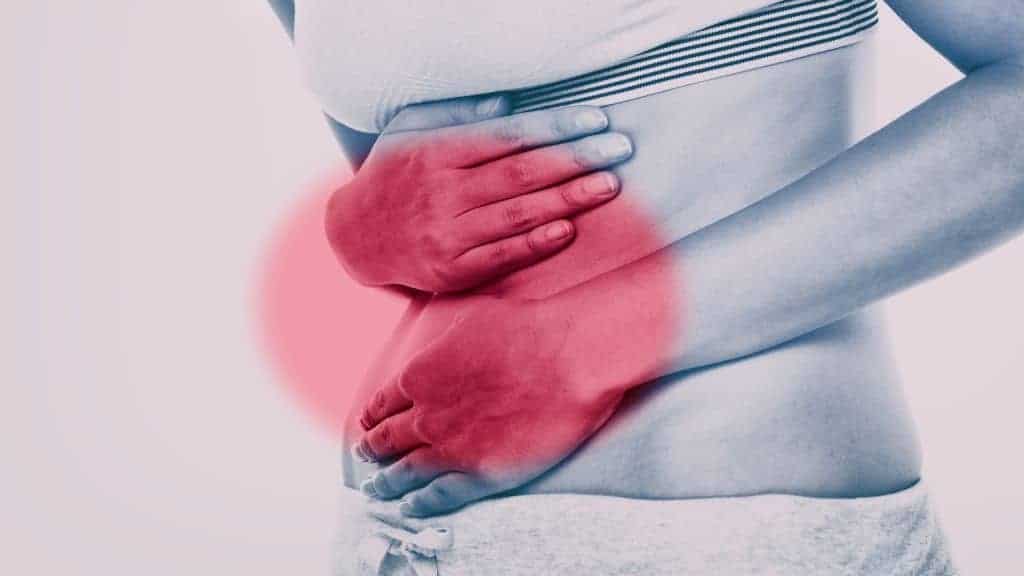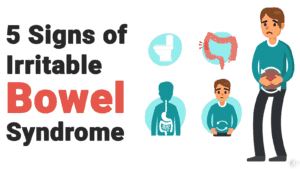Several conditions fit into the category of inflammatory bowel disease or IBD, and ulcerative colitis is one of them. The problem with this condition is that it causes sores called ulcers to imbed in the digestive tract. The inflammation is long-lasting and painful.
Colitis occurs in the deepest part of the lining of the large intestine, which is also known as the colorectal area. If you have this disorder, then the symptoms will develop slowly over time as they don’t come on suddenly, like with irritable bowel syndrome and other IBD conditions.
Sadly, this form of colitis is debilitating, and the stomach pains unbearable. In many instances, the complications produced from this condition are life-threatening. Currently, there is no cure for this painful disease, but regular treatment can reduce the symptoms.
Many people can obtain long-term remission and live healthy lives when they follow the proper treatment regimen.
What Causes Ulcerative Colitis?
While much research has gone into finding the reason for colitis, experts still only have theories. Initially, the medical community suspected that this disease was caused by poor diet and stress levels. However, those findings were a bit premature as they now know that they have nothing to do with this condition.
Decades of research now prove that it’s highly probable that this condition stems from an immune system malfunction. When there is a virus or bacteria in the body, the immune system kicks into high gear, trying to fight off the foreign invaders.
However, it’s believed that the immune system malfunctions in the process and go to attack the functional cells within the digestive tract. The failure destroys both good and bad cells in the body, which are essential for function.
Genetics is believed to play a role in this disease. If your parents had this condition, then the chances that you will get it increases. Strangely, many people that are diagnosed don’t have any family members who suffer from this condition.
10 Red Flags Indicating Ulcerative Colitis
The classic symptoms with ulcerative colitis are also red flags that you need to look for with this condition. Here are the most commonly seen signs that a problem exists.
1. Diarrhea
Diarrhea is a miserable ailment that is common in many circumstances. When you’re dealing with IBD, diarrhea can wake you up in the middle of the night. It can become so unbearable that you cannot leave your home. It’s also not uncommon for the stool to have a pungent smell because of the inflammation.
2. Blood and Puss in Your Stool
One of the most observed signs of ulcerative colitis is seeing blood or pus in the stool. Many can see the infection, from the inflammation and sores in their colon area, displayed in their feces.
3. Abdominal Cramping
The cramping that comes with bowel movements is commonplace as the muscles in the colon areas are moving to pass feces. However, the abdominal cramping that occurs with colitis is on a different level. These cramps are consistent and debilitating.
4. Constipation
Constipation alone is not a sign of colitis. However, the urge to need to empty the bowel can be overwhelming, especially when no matter how strong the desire, the bowels won’t move.
5. Weight Loss
When you have chronic diarrhea, you will naturally lose weight. However, many people become malnourished, too, as they are not absorbing the nutrients from their food. The digestive tract is in high gear and passing foods so quickly that it doesn’t have time to soak up the necessary things for good health.
6. Chronic Fatigue
Much of the fatigue comes from the immune system working overtime, as well as constant diarrhea. A general unwell feeling is normal because the body is fighting against itself in this autoimmune condition.
7. Fever
A fever is a response that is engineered by the immune system as it’s fighting foreign invaders. The body kicks the temperature up to try to destroy bacteria as most cannot thrive in a hostile environment. However, the fevers can be chronic and wear your body out as the condition is never-ending.
8. Growth Abnormalities in Children
Due to the malabsorption issues of this disease, if a child has ulcerative colitis, then there may be growth abnormalities. Since their body is not able to absorb the nutrients it needs to grow and thrive; their growth could be stunted until the issue is fixed.
9. Rectal Bleeding
When you use the restroom, it’s not uncommon for there to be blood on the tissue when you wipe. Rectal bleeding may become severe and require the use of a liner to protect the underwear. It’s like what you would see if you had hemorrhoids, but the blood is coming from the ulcers in the colon.
10. Dehydration
Dehydration can quickly occur from having chronic diarrhea. No matter how much fluids you ingest, it still won’t be enough to combat the loss from chronic bowel movements. IV fluids may be required if diarrhea is not responding to any over-the-counter treatments and has lingered for days.
 The Different Types of Colitis
The Different Types of Colitis
Ulcerative colitis is put into categories depending upon the location of the disease. Five distinct classifications dictate the area of the ulcers, as well as the symptoms that they will produce.
• Pancolitis
Pancolitis is diagnosed when the entire colon is affected. When a person is suffering from this form, they will have constant bloody diarrhea, which may be severe. The abdominal cramps and pain, as well as fatigue, may be overwhelming. Due to continuous diarrhea, there is commonly significant weight loss with this type of colitis.
• Ulcerative Proctitis
When the vicinity of inflammation is near the anus and rectum area, then the doctor will diagnose Ulcerative Proctitis. Most of the people that have this form of ulcerative colitis often show little to no symptoms. Additionally, it’s the mildest form of the disease, which makes it the easiest to treat.
When symptoms eventually appear, a person will display signs that include abdominal cramping, severe pain, bloody diarrhea, and continual constipation. No matter how strong the urge to use the bathroom, the bowels sometimes won’t move.
• Left-Sided Colitis
When the inflammation extends from the rectum area to the descending colon and on into the sigmoid, then left-sided colitis is to blame. When this area of the colon is affected, then you will suffer from abdominal cramping, left side pain, bloody diarrhea as well as weight loss.
• Acute Severe Colitis
Of all the forms of colitis, acute severe ulcerative is the rarest and worse type. The pain that a person experiences with this form is severe and unrelenting. The diarrhea is copious, and the bleeding problematic. Due to the amount of inflammation, a person will be unable to eat and will frequently develop a fever.

Diagnosing Ulcerative Colitis
Most people head to the doctor’s office because of problems with chronic diarrhea as well as stomach pain. Many think they have a passing virus, but they quickly learn that they have something more severe as it doesn’t seem to go away.
Many tests can be done to examine the colon for inflammation and ulcers. One of the most beneficial tests is a colonoscopy. During this test, the doctor will stick a long, slender tube into the colon to see the full impact of the damage. They can take pictures and samples of tissues should they need to evaluate them.
Imaging tests are also beneficial in making a diagnosis. An MRI and CT scan can all show lesions in the colon that are troublesome. Stool samples will show high levels of white blood cells in those that have colitis, and the doctor may want to do blood tests to look for anemia too.
It’s not difficult to conclude that a person has an IBD, especially when the tests are forth-telling. However, it’s essential to begin treatment so that a person can obtain remission.
 Final Thoughts Treating Ulcerative Colitis
Final Thoughts Treating Ulcerative Colitis
Treatment of colitis can depend significantly on a person’s age, overall health, and the type of colitis they are managing. One of the most common methods is to have bowel rest. A period of fasting can give the colon a much-needed break to heal some of the ulcers.
Another method commonly used changing the diet to softer foods that will not irritate the bowels. Also, some herbs can provide the same benefits without any side effects.
Lastly, when all else fails, then surgery may be the only hope. Surgical intervention with colitis helps to remove the damaged areas of the bowel so that a person can function normally. Though, it should be mentioned that the disease in the body can still cause new lesions to form.
Living with ulcerative colitis is never easy. The intense stomach pain, chronic diarrhea, and overall sick feeling can become overwhelming to manage. The key is to get help early before the inflammation and ulcers become worse.













 Community
Community

